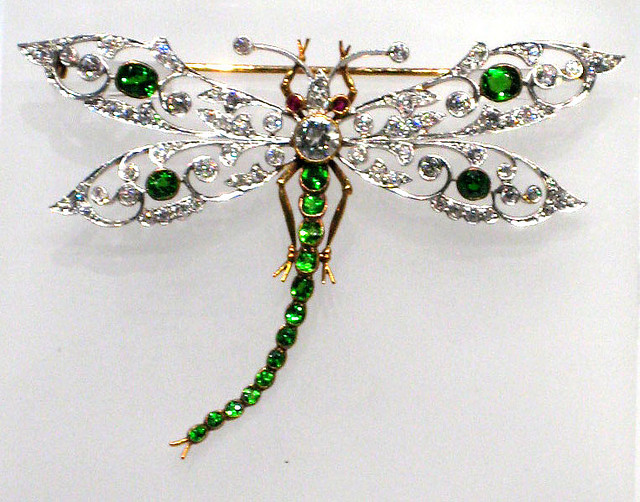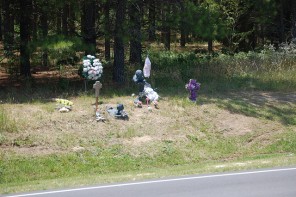Marie Manilla
Doo Fly Waller stood at the front door of the Barclay house on Washington Square fingering one of the Blood Fruit Orchard calling cards his father had had printed last week. The front side was a four-color illustration of a cluster of blood fruit nestled around a blue bottle. The backside advertised the curative value of the tonic that was growing in popularity: “Palsy! Snakebite! Dyspepsia! Lock jaw!” The list went on and on. He read his own given name printed beneath his father’s. Dorian. It sounded so strange on his tongue. Foreign. That extra syllable. The edge of formality. Not like Doo Fly, which did indeed fly from the mouth as if it had wings.
He meant to give the cards out during his factory tour, but he was so overwhelmed by sounds of omnibuses and ship horns and the roar-roar-roar of New York machinery and men and animals that he completely forgot. Mr. Barclay, the factory owner, had invited Dorian to stay at his Greek Revival, take in a play, have a grand meal—gratitude for purchasing bottling machinery for the blood fruit factory back in Wallers Ferry.
Now, on Barclay’s doorstep, Doo Fly recalled his mother’s refrain before she put him on the train heading north. She never talked about life on the plantation, so it stunned him when she gripped his face in her hands and told him the God’s-honest truth, or at least the truth of the time that might save all their lives: “My father is white. Your father is white. We are white.”
Suddenly the front door opened. A young woman spilled out and crashed into him, knocking them both down three steps. Doo Fly found his footing in time to keep them from collapsing to the ground.
She pushed him off and brushed down her dress. “What were you doing just standing there?”
“I was—”
An older woman in an apron leaned out the door. “Millie! I’ve told you a million times not to use the front door!”
“Sorry, Miss Edgemont. It won’t happen again.”
“It better not or I’ll boot you out no matter how Mr.—” Miss Edgemont saw Doo Fly, and her face flushed. “Pardon my outburst, sir. You must be Mr. Waller. Mr. and Mrs. Barclay are expecting you.”
Doo Fly walked inside, overhearing Miss Edgemont whisper to Millie, “Be back with the port before supper is over. And don’t you dare drink any!”
Doo Fly suffered the meal with too many servants draping his napkin and ladling his soup, clearing one dish to make way for another. All he could think about was the feel of Millie folded in his arms, her chest against his. He’d never held a woman. He’d never kissed a woman, white or black, and that was the problem. He fit in neither world. He didn’t fit in this one either, with Barclay tearing duck meat with his teeth, the fat running down his chin, smacking his wet lips, talking with his mouth full. “Tell me about Virginia, young man!”
“It’s West Virginia,” Doo Fly corrected for the hundredth time that day. He managed to sputter the speech he’d rehearsed about the Blood Fruit Tonic, the thriving ferry service. The surrounding farms the family was buying up to expand the orchard. But what Doo Fly really wanted was a glass of that port to see if any was missing. He hoped Millie had gotten a swig.
Mrs. Barclay dabbed her mouth with a napkin. “Enough business talk. Tomorrow we’re going to see The Pirates of Penzance!” She clapped her hands like a child, drawing Doo Fly’s attention to the brooch pinned to her substantial breast. A dragonfly made of gold, wings covered in diamonds, its wings shivering with her laughter, two rubies for eyes, both looking at him as if they knew he didn’t belong here.
Mr. Barclay and Doo Fly retired to the library for cigars, the blue smoke a band of clouds hanging above their heads. Millie entered with a tray, a ship’s figurehead cutting through fog. She wore a blue dress that sheened like water. Doo Fly was drawn to it, wanted to fly over and hum along the liquid seams and folds.
Millie set down the port and glasses and poured generous servings. Doo Fly pretended not to notice that Mr. Barclay’s hand rested on Millie’s a second too long when she handed him the glass, and her eyes went milky dead.
When she left, Barclay blew smoke toward a gilt statue of a woman reading, one finger about to turn a page. “She’s a beauty, isn’t she?”
Doo Fly’s bed was too soft, and his belly snarled from hunger. Barclay’s slobbery eating had stolen Doo Fly’s appetite. He slipped on his robe and went into the hall, then down the stairs toward the kitchen, passing the library, a flickering gaslight inside, the door ajar. Doo Fly leaned in and found Barclay pressing Millie against a bookcase, kissing her neck with that wet mouth. She wasn’t resisting, but even in the dim light Doo Fly could see her hazy eyes frozen on the gilt statue. Maybe she was pretending she was the woman, reading a book about an ogre in a library molesting the hired help, only she could turn the page if she wanted.
The next afternoon he looked out the library window at the park across the street, a fountain in the middle shooting water into the sky. Millie headed into the park in her water dress. Doo Fly had to follow, and he didn’t bother to announce his departure to Barclay who was snoring in an armchair.
Doo Fly wandered the curving path that led to the fountain and there, on a bench, sat Millie, her callused hands in her lap, her eyes closed. He sat down beside her and her eyelids snapped open.
“It’s you.”
Her eyes were as blue as her dress.
“I hope you don’t mind if I join you.”
Millie looked at him with her water eyes. “Won’t bother me, but the Barclays might not approve.”
They both looked at the row house, expecting to see the stodgy couple glowering from a window.
“I don’t care what they think.”
“It’s my job on the line.”
“I’ll see you don’t get fired.”
Church bells clanged. A flock of pigeons took flight and resettled further down.
Doo Fly assessed the park. “It’s pretty.”
“It used to be a graveyard. Before that, Negros farmed here. I imagine Negro and white bones are mixed up all together beneath this dirt.”
Doo Fly wasn’t sure what she was getting at, but he took it as a sign. He laid a finger on a bit of fabric from her dress that rested on the bench between them. She did not rebuke him.
That night he was about to slip downstairs, but bumped into Mrs. Barclay in the hall, dragonfly brooch still attached to her dress, its red eyes glowing in the light from the wall sconces.
“I was stretching my legs,” he said. “Care to join me?” He hoped she would and maybe make a discovery that would put an end to Barclay’s crime.
She fingered the brooch. “I don’t go downstairs after nine o’clock.” The weariness in her eyes betrayed everything.
Minutes later, Doo Fly stood before the closed library door. From within came the sounds of rustling fabric, a slobbery mouth.
Before sunrise Doo Fly slipped into Millie’s room. It was ungentlemanly, but so was this house. She nearly yelled when he sat on her bed, but he clamped his hand over her mouth.
“Come with me.”
She swallowed her scream.
“I love you.” He wasn’t sure if that was true, but she was the first woman he’d met who also straddled worlds.
She peeled his hand from her mouth. “You don’t know me.”
“I know you don’t belong here.”
She looked into his eyes a long time. “That’s the honest truth.”
Two hours later they were boarding a train bound for Boston, Doo Fly fingering the calling cards in his pocket. This is crazy. Millie wouldn’t let Doo Fly carry her valise. Nor would she let one of the black porters take it, and they were surrounded by colored men taking tickets, directing passengers to their seats, fetching water for anxious travelers, ex-slaves hustling back and forth on the platform as the train prepared to depart. For the first time, Doo Fly felt more white than black, as if he’d crossed over into something. All these black men catering to me.
Millie peeled off her coat before she sat. Doo Fly saw the dragonfly brooch pinned to her chest, diamonds glittering in the morning sun. He imagined her quietly slipping into the Barclays’ bedroom and lifting it from the jewelry box while Barclay and his abetting wife drooled on their pillows.
He reached out to touch the pin, Millie leaning away. He said, “I’m glad you took it.”
Millie looked into his eyes as if she were scanning the inside of his skull. “You mean it?”
He nodded.
“What’s your Christian name?” she asked.
“Doo Fly.” Habit made him say it.
Her head tipped back as she snorted. “That’s a ridiculous name.”
For the first time Doo Fly understood just how ridiculous it was, a nickname that had followed him from the plantation. “Dorian is my given name.”
Millie looked at him. “That’s better. It sounds important. Mr. Dorian Waller.”
It startled him to hear it. It belonged to someone else, the white man Doo Fly would have to grow into.
“Mrs. Dorian Waller.”
Dorian loved the sound of her wearing his name so much that he leaned over and kissed her. She did not resist, but her rigid face might as well have been gilt.
“And from now on I’m Millicent, and I was never a housemaid.”
He pulled away, and as the train chuffed from the station he pretended not to see the milky wash in her eyes. He also pretended he didn’t hear when she said, “I can’t stand being around all these darkies.”
Marie Manilla is a graduate of the Iowa Writers’ Workshop. Her fiction has appeared in the Chicago Tribune, Mississippi Review, Prairie Schooner, and other journals. Her books include Shrapnel, winner of the Fred Bonnie Award for Best First Novel; Still Life with Plums: Short Stories; and The Patron Saint of Ugly, just out from Houghton Mifflin Harcourt. Learn more at www.mariemanilla.com, and follow her on Twitter at @mariemanilla.




